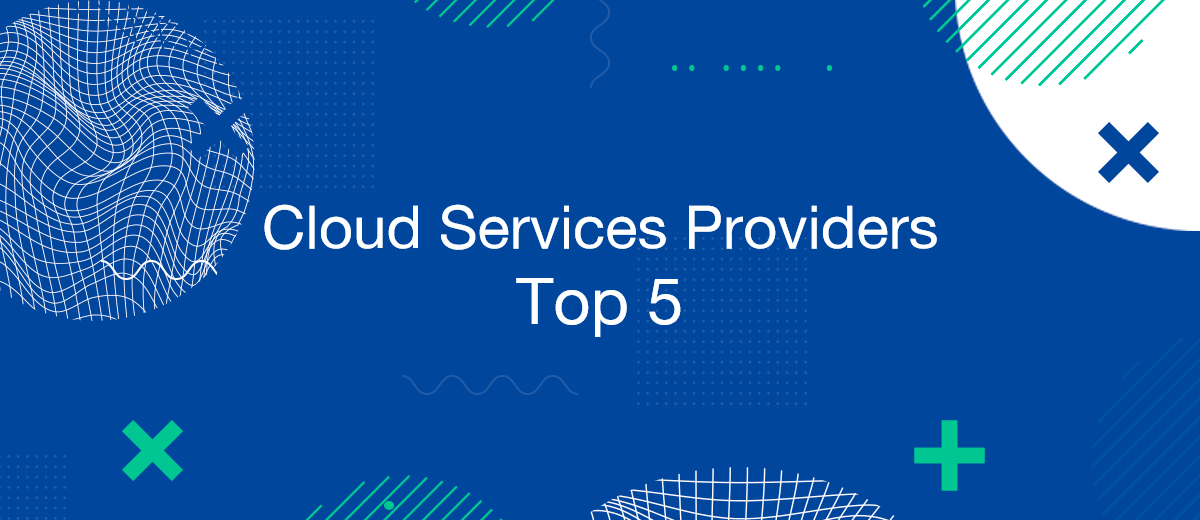Data storage and processing are considered one of the most promising and sought-after areas of IT services. Recently, cloud providers have become widespread, providing users with servers, storage, and other resources for remote data management. In this article, we will tell you who cloud services providers are, what services they provide, and how they are evaluated. You will also learn about the best cloud providers on the market, compare their capabilities and get to know their areas of application.
Introduction to the Cloud Providers
Cloud computing services are IT companies that provide computing resources for individual and corporate users. These include physical and virtual servers, databases, storage, memory modules, processors, messaging services, Big Data analysis resources, and so on. Modern cloud computing companies offer a wide range of products and services with flexible terms of use.
Active competition in the cloud services market and intensive improvement of IT technologies encourage providers to constantly supplement and update their products. Every year, they are becoming more and more popular for both businesses and individuals, thanks to flexible functionality and affordable pricing models. Today, there are many formats and options for such services on the market, which vary in a number of parameters: storage volume, computing power and other resources.
Evaluating Cloud Services Providers: Key Factors
Given the large number of cloud providers and the services they offer, it is worth taking seriously the selection of a supplier company. First, you should consider what kind of service you need. There are three main types of cloud computing services on the market today:
- IaaS (Infrastructure as a Service). Cloud infrastructure providers offer rental of various IT infrastructure (servers, storage, virtual machines, networks, operating systems, and so on) through remote access. Well-known IaaS companies: Amazon Web Services, Microsoft Azure.
- PaaS (Platform as a Service). Their services are intended for companies that develop, test and maintain software. In general, PaaS are similar to SaaS services, but also provide additional tools: database management systems, business intelligence. Notable PaaS companies: Apprenda, Red Hat OpenShift.
- SaaS (Software as a Service). Companies of this type provide users with remote cloud access to covered software of various types and formats on a subscription basis. Notable SaaS companies: Salesforce, Google Applications.
In addition to the listed types, there are a number of other criteria that you should pay attention to when choosing and evaluating providers of cloud services. These include:
- Possibilities. First, you need to study the set of products and services offered by the supplier, which can vary significantly depending on the capabilities of the selected company.
- Payment. Find out what payment model cloud storage providers offer. A very common among them is the pay-as-you-go model, according to which users pay only for the services and resources they use. That is, for the volume actually consumed by them at fixed prices.
- Scalability. Another important criterion for choosing a provider is the scalability of services. At the stage of consideration of proposals, it is recommended to analyze the possibilities for expanding the list of services offered or increasing capacities. You should also familiarize yourself with the range of tariff plans, having studied the ratio of the cost and volume of included products.
- Service. An equally significant factor in the selection of a cloud service is its conditions for customer service. Among the key ones, it is worth noting the guarantee of service availability: well-known providers guarantee uptime over 99% (24/7). In addition, the conditions and work schedule of support are important, which often depend on the tariff plan chosen by the client. It is also worth familiarizing yourself with the options for maintaining and updating software, servers, databases and other resources.
Top 5 Cloud Services Providers of 2023
The top five cloud service providers are:
- Amazon Web Services (AWS);
- Microsoft Azure;
- Google Cloud;
- Oracle Cloud;
- IBM Cloud.
We suggest you familiarize yourself with each of these providers in more detail. After analyzing the opportunities that they provide to their customers, you can choose the most suitable option for yourself.
Amazon Web Services
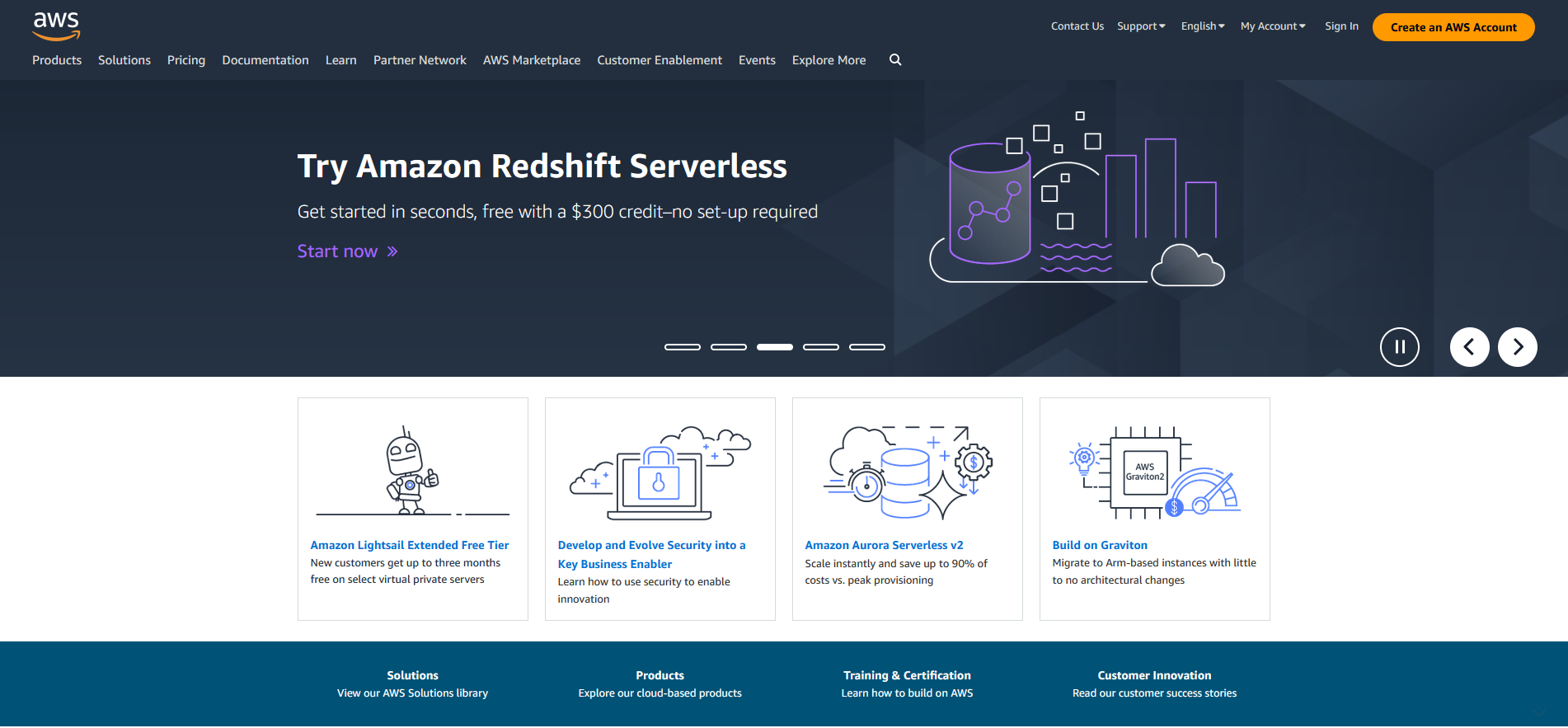
Amazon Web Services (AWS) rightfully ranks first in the top cloud services providers ranking. It provides the most flexible, functional and scalable platform, which includes more than 200 products for various purposes. AWS has 84 availability zones covering 26 geographic regions. This provides it with more than 30% of the global market for cloud services.
Amazon Web Services offers a variety of use cases, making it popular with a wide range of users. The resources offered by the service allow you to perform many operations, including data and database migration, content delivery, analytics, data lakes, edge computing, and so on.
Separately, it is worth noting a number of products for developers: front-end, web and mobile development. In addition, database management systems (DBMS), cloud computing service, cloud storage, email provider, and powerful AWS Security are available as part of AWS.
Microsoft Azure
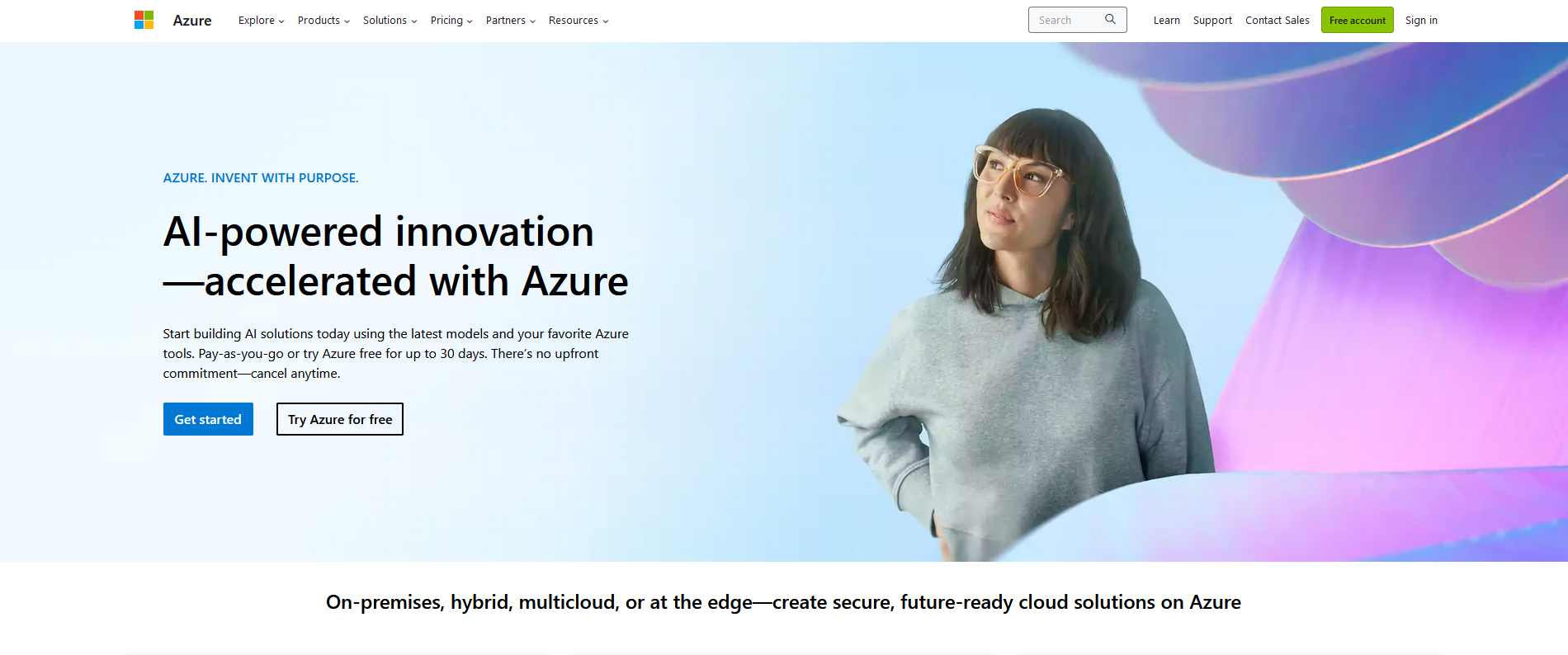
Deservedly, the main competitor of AWS, the Microsoft Azure platform, also entered the top cloud solutions. It offers users a range of cloud service formats, including IaaS, PaaS, SaaS, and serverless computing. Its customers have access to hundreds of different products and 116 availability zones covering 60 geographic regions.
The capabilities of Microsoft Azure are represented by tools for cloud deployment of mobile and web applications, AI technologies, Machine Learning and Blockchain, containers, SQL databases, analytics, DevOps, storage, Windows Virtual Desktop, the Internet of things and much more.
Additionally, it is worth noting the advantages of Azure among cloud security services provider managed security services providers. It offers products such as Azure Active Directory, Security Center, VPN Gateway, DDoS Protection, Information Protection, Key Vault, and more. More than 90 certificates of conformity of different types are available to users, as well as the Azure Stack service for running applications on-premises.
Google Cloud
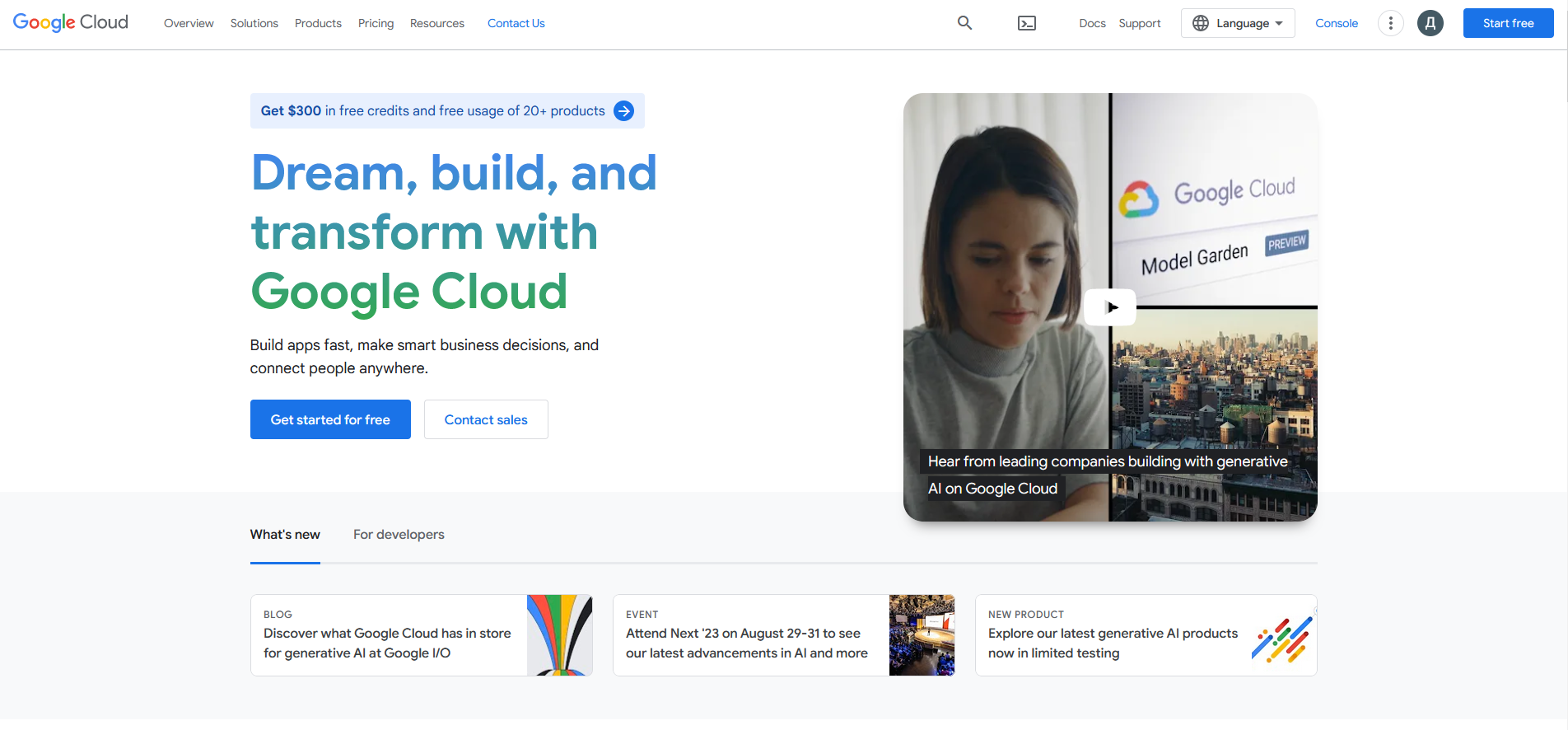
Google Cloud Platform (GCP) closes the top three most famous cloud computing companies. Its users have access to an extensive set of cloud services for different purposes and tasks. These include cloud computing tools, storage, databases, AI and machine learning, security, and more.
The Google Cloud service is the best option for deployment in enterprises without any preliminary preparation or configuration. It provides a flexible, scalable infrastructure suitable for developing, testing, and deploying programs and applications.


In addition to a wide range of developer tools, GCP has many other useful features: server and serverless computing, containers, data analytics, hybrid and multi-cloud technologies, API management, Internet of things, data management, and so on. The Google Cloud service has 103 availability zones in 34 geographic regions around the world.
Oracle Cloud
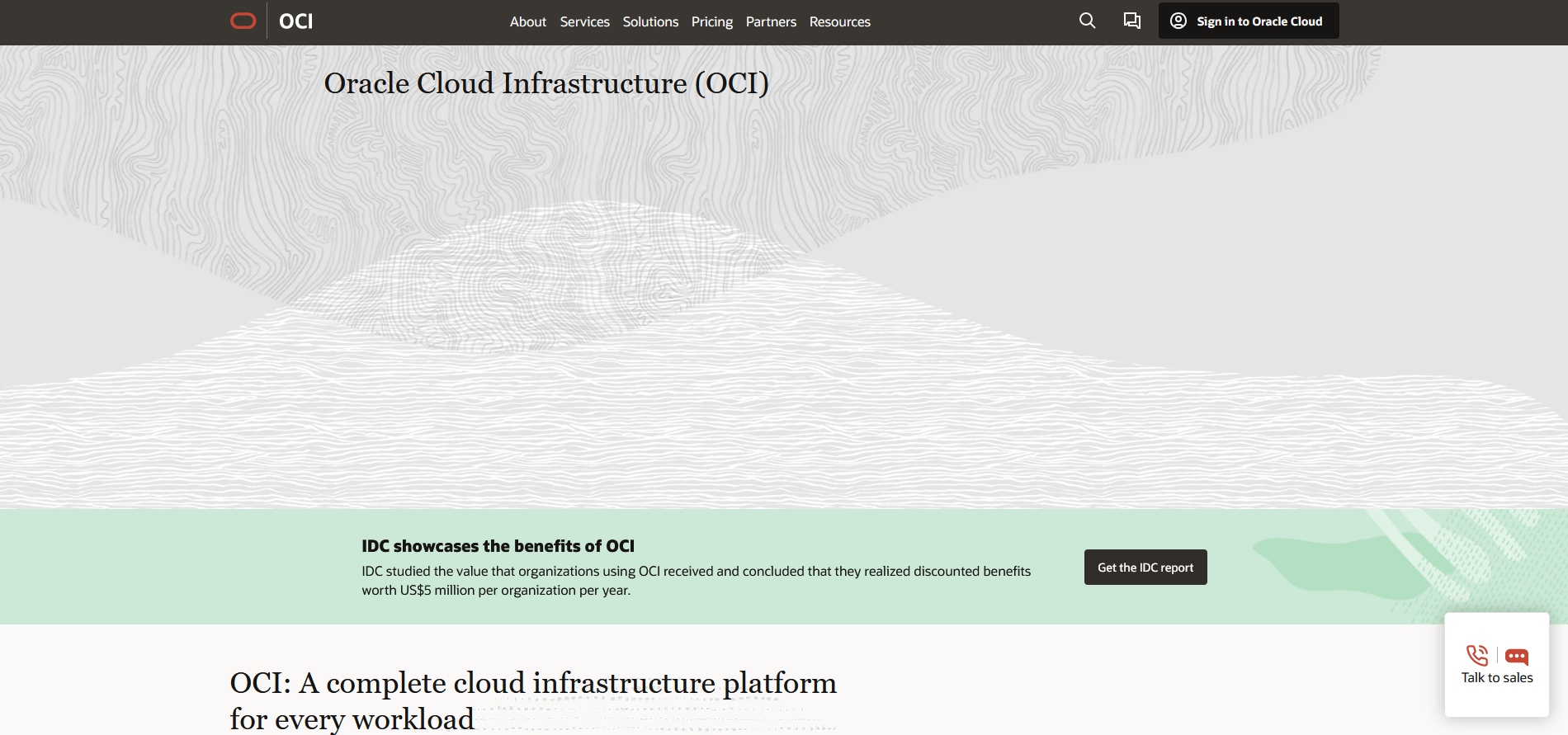
Oracle Cloud is a hybrid platform that includes a range of cloud service formats (SaaS, PaaS, IaaS and DaaS – Data as a Service). The key component of the system is Oracle Cloud Infrastructure (OCI), which provides cloud computing, storage, networking, and a number of other features.
Also in the list of tools of this cloud computing services provider is available a module for storing and processing big data Oracle Big Data Cloud, a module for databases Oracle Database Cloud Service, and an autonomous database Oracle Autonomous Database.
The Oracle Cloud platform has a simple and understandable interface for novice users, and also offers simple and fast transfer of data between accounts. Separately, it is worth noting the FastConnect function for creating hybrid clouds and multi-cloud environments.
In addition, there are convenient options for creating backups and restoring data, developing and deploying applications, business intelligence, and a number of other tools. Cloud hosting service Oracle Cloud offers users 46 availability zones in 38 geographic regions.
IBM Cloud
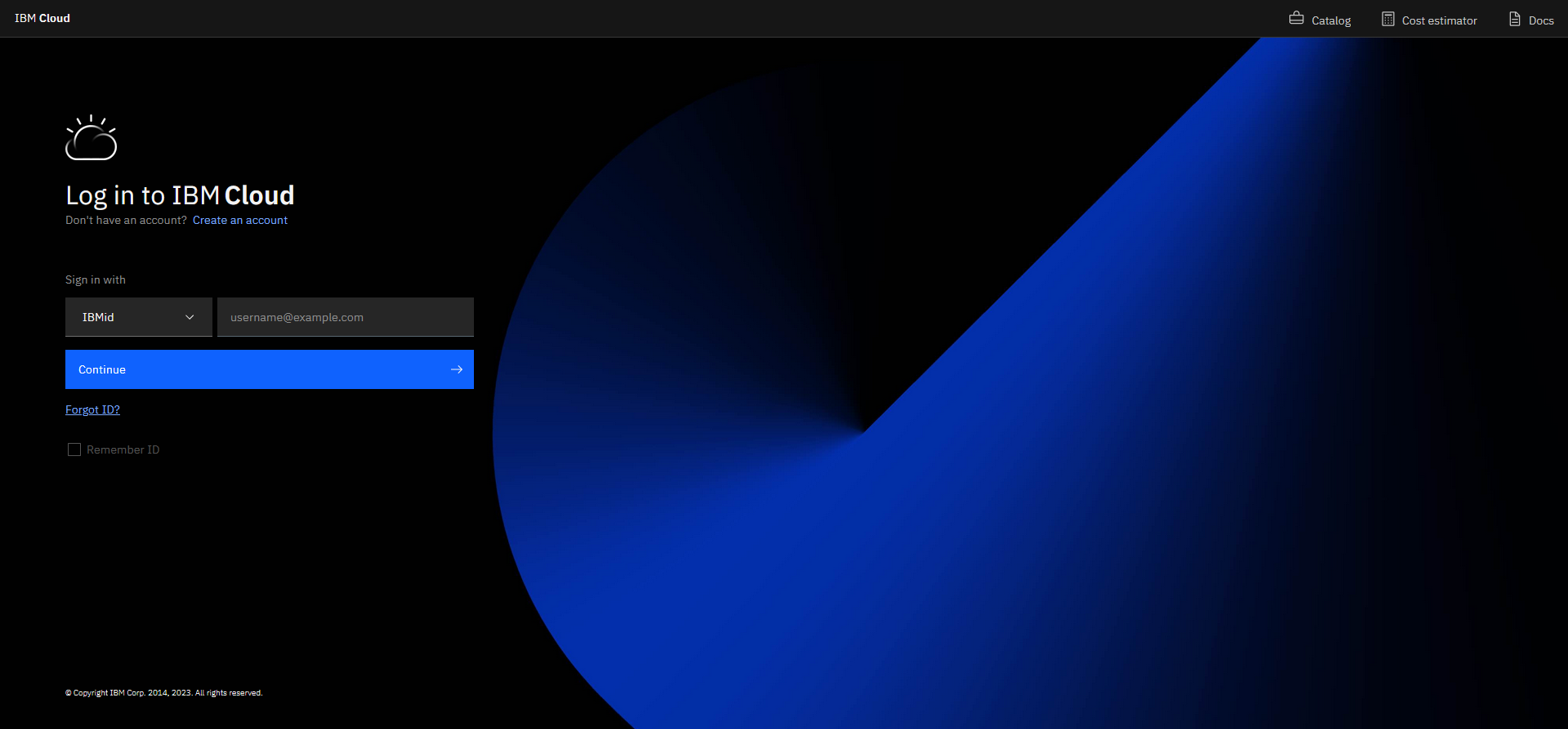
The last on our list, but far from the last in popularity among cloud services for business, is the IBM Cloud platform from another well-known IT corporation. Like other services of this type, it provides three popular cloud computing formats (SaaS, PaaS, IaaS), as well as three cloud models: public, private, hybrid.
Recently, the corporation has been actively developing its own Watson AI neural network, as well as a number of other technologies for artificial intelligence, machine learning and data analysis. All of them are used to enhance the capabilities of its cloud services. The service has 18 availability zones in 6 geographic regions.
In addition, the cloud managed services provider IBM Cloud supports seamless integration with many third-party platforms, making its cloud computing more powerful. The Bluemix Cloud service it supports enables the deployment of high-performance cloud communications and services to the user's IT environment.
Comparing the Features of the Top Cloud Providers
After a brief overview of the most popular platforms, a cloud services providers comparison should be made. This will help you make a choice in favor of the most suitable option.
You should pay attention to their coverage. Microsoft Azure is the most extensive (116 availability zones and 60 regions), Google Cloud is in second place (103 zones and 34 regions), AWS is third (84 zones and 26 regions), followed by Oracle Cloud (46 zones, 38 regions) and IBM Cloud (18 zones, 6 regions).
Another key factor in comparing top providers is the analysis of their market presence as of 2023. The leading position here is occupied by Amazon Web Services, covering 32% of the market, the second place belongs to Microsoft Azure with 23%, and Google Cloud closes the top three with a 10% share. As for Oracle and IBM, they lag far behind in this indicator: the share of both companies in this segment is 3-4%.
In addition, when conducting cloud platforms comparison, one should note such an important factor as the number of services offered by providers. AWS is at the top again, with over 200 tools available to its users. Microsoft Azure and Oracle Cloud offer over 100, and Google Cloud over 60 cloud services. As for the IBM Cloud, you can find more than 170 services in the catalog of this platform.
Comparing cloud computing services features and benefits, it is worth highlighting the key advantages of all the listed sites. AWS actively integrates AI and ML technologies into its services, and also offers users the SageMaker platform for training and deploying ML models. It features a Lex conversational interface with support for Alexa service, AWS Greengrass IoT messaging service, and Lambda serverless computing service.
Microsoft Azure also makes heavy use of cognitive technologies, including a bot training service, Bing Web Search API, Text Analytics API, Face API, Computer Vision API, and Custom Vision Service. In addition, it has functionality for IoT and serverless computing.
A key feature of Google Cloud is many APIs for processing natural language, speech, translations and a number of other tasks. This platform offers IoT and serverless computing technologies to its customers, but so far in beta format. Another important advantage of GCP is TensorFlow, an open-source software library popular among developers for creating ML applications.
Cloud Services Providers Use Cases
At the end of our review, we would like to discuss the areas and ways of using cloud services for business. Among them, it is worth highlighting the following:
- Data storage. Cloud services are universal and easily scalable, so they are best suited for storing and processing information on various types and volumes: for example, protected personal data, files with private and public access (file sharing), media files (video streaming services, video and image hosting, and so on).
- Software development and testing. Cloud resources are the optimal space for developing, testing and deploying software. They make these processes more flexible and efficient, thanks to the wide possibilities for managing cloud environments. Companies do not need to spend resources on preparing the physical environment, installing and configuring a special platform for development. Cloud computing accelerates, simplifies and streamlines these processes.
- Chatbots. The best cloud services providers offer advanced AI and ML technologies to build and maintain powerful interactive chatbots. This is a very promising area that makes it possible to automate sales funnels, as well as online customer service and support services.
- Data backup and recovery. Another in-demand use of cloud platforms is helping their customers securely store backups of their data and infrastructure in the cloud, quickly restoring them when needed.
- Big data analysis. Many services provide a large amount of cloud computing power, sufficient for fast and accurate processing of large amounts of data. Thanks to this, client companies can collect and analyze huge amounts of structured and unstructured information, using the obtained information to optimize business processes.
Conclusion
Managed cloud services are not in vain considered one of the most popular IT service providers because they help to collect, store and process the main resource of the 21st century – information. Today there are dozens of cloud providers on the market, but the largest of them are 5 platforms: Amazon Web Services, Microsoft Azure, Google Cloud, Oracle Cloud and IBM Cloud.
There are a number of factors to consider when choosing the right cloud service. In particular, formats (IaaS, PaaS, SaaS, and others), the number of services offered, scalability, payment model, as well as the key advantages of each of them. There are many applications for such platforms. Among the main ones are data storage, software development and testing, chatbots, Big Data analysis, data backup and recovery.
Are you using Facebook Lead Ads? Then you will surely appreciate our service. The SaveMyLeads online connector is a simple and affordable tool that anyone can use to set up integrations for Facebook. Please note that you do not need to code or learn special technologies. Just register on our website and create the necessary integration through the web interface. Connect your advertising account with various services and applications. Integrations are configured in just 5-10 minutes, and in the long run they will save you an impressive amount of time.
